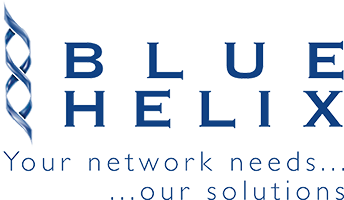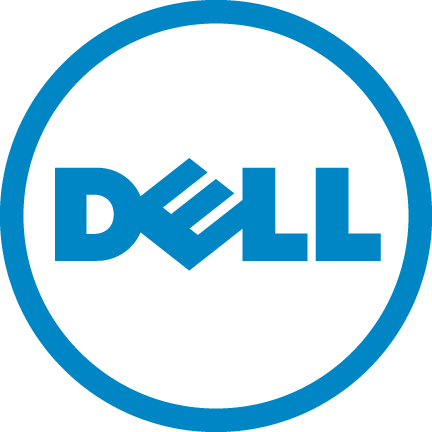

ICTF Conference 2016
Saïd Business School – Friday 24 June
Breakout Sessions
| Breakout Session A |
10:30–11:15 |
| A1 |
Digital Forensics: An unauthorised access case study |
Chris Hargreaves, HARGS Solutions Ltd |
|
10:30
|
This session builds on last year's "Introduction to Digital Forensics" talk. This year’s talk will be based around a fictitious scenario involving an unauthorised access to a network share from a malicious insider. Using this scenario as a backdrop you will gain further exposure to some of the techniques, capabilities and limitations of digital forensics. |
| A2 |
IT Innovation – challenges and rewards |
Ylva Berglund Prytz, IT Services |
|
| 10:30 |
Create virtual versions of your bookshelves (and share these), record your lab experiments and play musical instruments on your phone. These are three examples of the 35 projects funded by the IT Innovation Challenges to date. This workshop will allow you to find out more about the scheme, discuss the open innovation process it uses, and explore how you can use the Oxford Ideas platform to run your own initiative. http://www.it.ox.ac.uk/innovation-challenges |
| A3 |
Wearable Medical Technology |
Clara Mancini, Open University |
|
| 10:30 |
Animal-Computer Interaction: Expanding the Boundaries of Interaction Design beyond Humans
Animal-Computer Interaction (ACI) is an emerging discipline aiming to study the relation
between animals and technology in naturalistic settings, design user-centred technology to support animals in various contexts,
and inform user-centred approaches to developing animal technology. In this talk, I will introduce the research program of
The Open University’s ACI Lab. Focussing on some of our projects, I will discuss the design and methodological implications arising
from designing for and with animals. I will also reflect on the benefits of thinking about interaction design from an extended,
multispecies perspective rather than from a merely human perspective. |
| A4 |
Introduction to PGP |
Michael Howe, IT Services |
PDF |
| 10:30 |
In this talk, Michael will attempt to give a whistle-stop outline of what PGP is, how it works, and, more practically, why it might be useful or relevant to you- even if you don't need to exchange encrypted information with others. It will also cover some tips around setting up your own PGP key.
Please note that this session will not include keysigning. |
| A5 |
Oxford IT Governance |
Prof. Anne Trefethen, University of Oxford |
PDF |
| 10:30 |
Since the formation of IT Services in 2012,
and the formation of the University-wide IT Strategy in 2013, there have been some major
developments on how IT Governance works in Oxford, including the formation of the IT Boards, comprising academics as well as academic-related staff.
In this breakout you have the chance to hear Oxford's CIO explain how things work, what has changed and what plans are for the future. |
| A6 |
Business Relationship Management |
Tony Brett, IT Services |
|
| 10:30 |
BRM is all about managing the relationships between service providers and business outcome providers within an organisation. The relationship in a college (or University) between an IT department and those delivering teaching or research is very much the sort of relationship that BRM principles can empower and optimise. The core activities of BRM are Demand Shaping, Exploring, Servicing and Value Harvesting. In that framework this talk will look briefly through the six disciplines of BRM, namely Strategic Partnering, Business IQ, Portfolio Management, Business Transition Management, Provider Domain Knowledge, and Powerful Communications. Tony will give his take on these principles and how he sees them working in real-life examples in the Oxbridge context. |
| Breakout Session B |
12:30–13:15 |
| B1 |
What will the GDPR do for us? |
Andrew Cormack, JISC |
PDF |
12:30
|
The European Community has just completed negotiation of a new General Data Protection Regulation, expected to come into force in 2018. This talk will review the changes in approach from existing legislation and the impact on specific networked services: clouds, federated access management and incident response. |
| B2 |
Future Security Analytics at Oxford |
Paul Hood and Kristian Kocher, IT Services |
|
| 12:30 |
The risk posed by cybercriminals, hacktivists and other technological adversaries increases every year, and our organisation represents a tempting, high-profile target; OxCERT and the Information Security Team are committed to meeting this threat head-on.
In this workshop we will discuss our multi-pronged approach to tackling and staying ahead of this trend, including the research and development of sector-leading security monitoring technologies in the form of OxCERT's new 'SAVANT' clustered analytics engine. |
| B3 |
Web CMS Platform – Project Canvas |
Ruth Mason and Matthew Castle, IT Services |
PDF |
| 12:30 |
Over the last year IT Services has been developing a platform to provide research teams, departments, colleges and other users with cheap, secure and easy to manage websites based on a core platform.
Come and hear why we did this, how we approached a pilot project to assess demand, and then translated this into a scalable system capable of supporting the Humanities divisional and Ashmolean websites.
We will also cover how we are managing the software development with an agile approach and some of the challenges that we will face in transitioning into full service. |
| B4 |
Core User Directory (CUD) data integration using the CUD Receiver tool |
Scott Cridland-Smith, IT Services |
PDF |
| 12:30 |
Since January 2015, student data has been made available from SITS:Vision, via the Core User Directory (CUD) service, for use in local IT systems by colleges and departments. As part of the SITS:Vision for Colleges project, several colleges requested that the existing data integration tool shared by many CUD users (the "CUD Receiver") should be updated and brought under IT Services support. In order to achieve this, a new version of the CUD Receiver has been developed and installed by some of the colleges participating in the project. We aim to make the new version available to all colleges, including those not participating in the SVFC project, as well as University departments. The details of the support model are currently being agreed and we hope to update you at the session, as well as demonstrating the new CUD Receiver, how to request it, and how to install it.
|
| B5 |
Cost Effective High Performance Storage |
David Ford, OUCE |
|
| 12:30 |
David Ford explores the technology, techniques and motivations behind the School of Geography's recent refresh of their storage solutions. The talk will explore the challenges in producing a cost-effective and cross-platform storage solution when handling many hundreds of Terabytes of data, and some of the imaginative approaches the school has taken to achieve an increased resiliency in their storage whilst at the same time reducing the marginal cost of storage expansion by researchers by almost an order of magnitude. The talk will conclude by looking at some of the new services that this enhanced storage infrastructure has enabled. |
| B6 |
Green Impact: Greening the IT Estate |
Simon Geller, University of Sheffield |
PDF |
| 12:30 |
IT accounts for approximately 2% of the world’s carbon emissions. However, it also has potential to reduce the world’s emissions and this potential is being realised in many different areas across the IT world. What can we, as IT professionals, do to ensure that our industry is as sustainable as it can possibly be? This workshop addresses the journey that Universities need to embark on to Green the IT estate, using the NUS Green Impact initiative as the platform for change. |
| Breakout Session C |
15:15–16:00 |
| C1 |
A Right Ding-Dong! An introduction to an Oxford custom |
Gerard Robinson, Medical Science Division IT Services |
|
15:15
|
Oxford Academics were amongst those who collected and rejuvenated the ancient art of Morris Dancing in the early 20th Century thereby recording what had been a purely oral tradition. It has been a regular feature of May Morning in Oxford since 1923 and there has been an (un)official OU Morris side since 1926. This will be a practical introduction to some Cotswold Morris Dances. No previous experience necessary but comfortable footwear and clothing is essential. Do visit: www.am39.com |
| C2 |
IT Mergers Round Table |
Ronald Haynes, Cambridge University |
PDF |
15:15
|
Oxford and Cambridge went through dramatic changes to their IT organisations in
the last few years, with Oxford leading the way by about 2 years. Like many universities, both are trying to keep up with
rapid developments in IT, respond to overall changes in higher education, and appropriately relate one with the other.
As leading institutions of innovative research and advanced education, neither are always entirely confident of whether
their IT resourcing, provision and development is either sufficiently advanced or suitably innovative to match the rest of their
institutions' requirements. This round table will provide an open, honest, and probing opportunity to share and contrast the
different experiences and outcomes, and consider ways in which both might learn from each other, as well as from other institutions,
in order to better address and resolve the new and persistent challenges of the newly-merged models. |
| C3 |
Info Sec – Governance |
Jonathan Ashton, IT Services |
|
15:15
|
Turning the tide: How to secure a collegiate University
With an ocean of committees, a sea of departments, colleges, users and students, and a multitude of differing security requirements, securing a collegiate university can feel like swimming against the tide. Yet, despite the complexity, devolved nature and huge variance in security expertise and resource across the institution we are still one organisation in the eyes of our stakeholders and regulators. Not only do we need to implement a consistent level of security, we also need to be able to demonstrate it. This workshop looks at the approach the University is taking to navigating the choppy waters of information security and governance in order to provide appropriate direction, support and assurance. |
| C4 |
HPC sig – roundup |
Andrew Richards, IT Services |
PDF |
15:15
|
High Performance Computing is an increasingly essential tool utilised across a broad range of research. The Oxford HPC Special interest group was established to bring together providers of HPC and those interested in supporting HPC across Oxford in order to share and disseminate best practice. The forum also acts as a group to gather requirements that can influence provision of central services.
This meeting will also discuss what HPC provision in Oxford could or should look like in 2020. |
| C5 |
How to innovate without everyone hating you |
Chris Dixon and Tom Skarbek-Wazynski, University of Lancaster |
PDF |
15:15
|
In September 2014, Lancaster University created an “Innovation Hub”, designed to raise the profile of innovation, engage with students and deliver fast and agile results. This session will give insight (and demo) into the hundreds of ideas generated, how we engaged students and staff and delivered gamification, minecraft the campus, an events management platform and lots more. |
| C6 |
Hyping on Hyperconvergence |
Several (various) |
|
15:15
|
|



